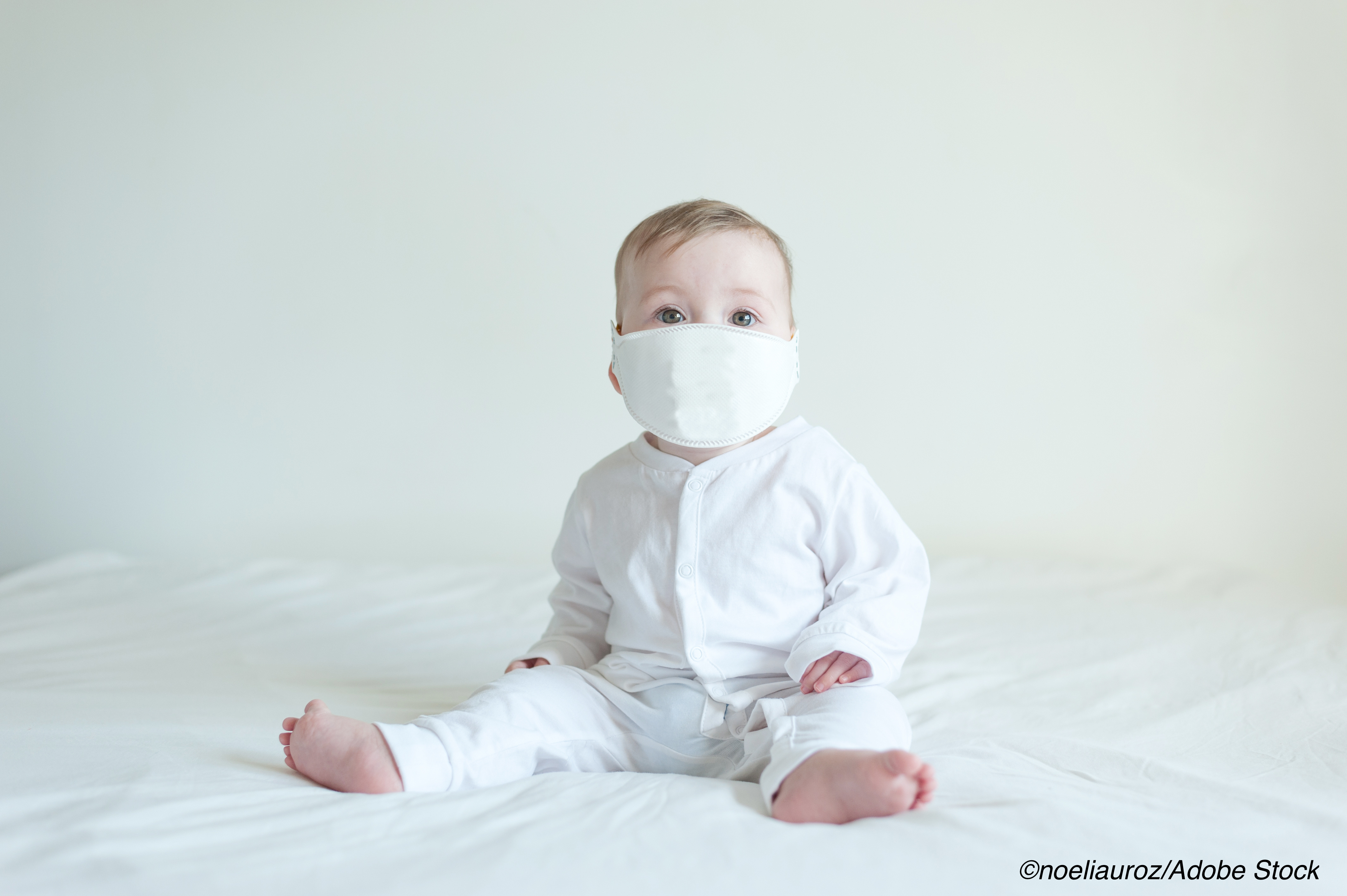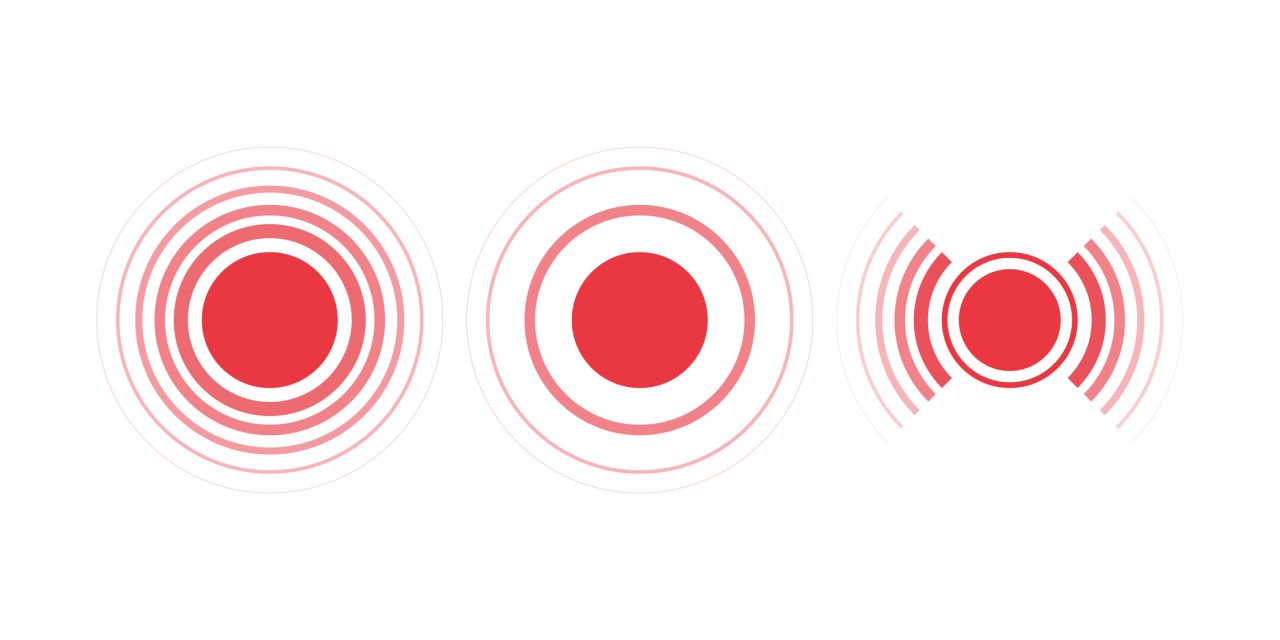
The use of face masks by infants and young children during the Covid-19 pandemic had no negative impact on respiratory measures, even in those age 2 years and younger, according to a study conducted in Italy and published in JAMA Network Open — however, the cohort used in the study was small, and researchers measured respiratory parameters for only 30 minutes of mask wearing by the children.
“Among children, the U.S. Centers for Disease Control and Prevention (CDC) and the American Academy of Pediatrics (AAP) do not recommend the use of face masks [for Covid-19] among individuals aged younger than three years. These organizations also recommend special precautions for children with severe cognitive or respiratory impairments,” explained Riccardo Lubrano, MD, PhD, and fellow researchers, all of Sapienza University of Rome, Polo Pontino, Rome.
“Children in these groups also experience problems with the use of face masks because poor motor skills and coordination may make it difficult to remove the mask. In addition to poor compliance with mask wearing expected in a pediatric population, these indications for the use of face masks among children aged younger than three years or children with disabilities are often misinterpreted and are associated with widespread public distrust of face mask use among children,” they added.
To determine whether young children experienced any episodes of oxygen desaturation or respiratory distress while wearing surgical masks, Lubrano and colleagues conducted this study in a secondary-level hospital pediatric unit from May through June 2020. They recruited 47 healthy children, whom they divided by age into Group A (≤ 24 months) and Group B (> 24 months to ≤ 144 months).
Children were monitored every 15 minutes for changes in respiratory measures for the 30 minutes before they wore a surgical mask, and then for 30 minutes while wearing one. After mask wearing, children aged 24 months and older took a 12-minute walking test.
Researchers found no significant changes in the children in Group A in either median partial pressure of end-tidal carbon dioxide (PETCO2P for Kruskal Wallis=0.59), oxygen saturation (SaO2P for Kruskal Wallis=0.61), pulse rate (PR; 130.0 [115.0-140.0] pulsations/min; P for Kruskal Wallis=0.99), or respiratory rate (RR; 30.0 [28.0-33.0] breaths/min; P for Kruskal Wallis=0.69).
Neither did they see any significant changes in respiratory measures among kids in Group B: median PETCO2 (36.0 mmHg; P for Kruskal Wallis=0.97), SaO2 (98.0%; P for Kruskal Wallis=0.52), PR (96.0 pulsations/min; P for Kruskal Wallis test=0.48), or RR (22.0] breaths/min; P for Kruskal Wallis=0.55).
After the 12-minute walking test, the children in Group B had a significant increase in median PR compared with before the walking test (96.0 vs 105.0 pulsations/min, respectively; P ˂ 0.02), as well as in RR (22.0 vs 26.0 breaths/min; P ˂ 0.05).
Study limitations include the short duration of respiratory measurements while children wore face masks (only 30 minutes) and the small sample size.
“This cohort study found that the use of surgical face masks among children was not associated with changes in respiratory function, including among children ages 24 months or younger. These findings may help promote the use of surgical masks among children, especially in view of the reopening of schools,” wrote Lubrano and colleagues, arguing that these results called for a carefully considered re-evaluation of guidelines.
“Overall, our findings suggest that recommendations against the use of surgical masks could be reconsidered in this age group, though our findings exclude possible adverse effects associated with gas exchange in children younger [than] 24 months wearing face masks. However, CDC and AAP guidelines state that infants and toddlers could have difficulty removing face masks and may not be able to communicate if they are having trouble breathing. Our findings may provide additional evidence suggesting that the use of face masks in this group of children in certain high-risk situations may not be associated with changes in respiratory function. However, constant supervision of adults would be needed,” they wrote.
Lubrano and fellow researchers were also hopeful that their study, despite its limitations, will encourage mask wearing among children.
“Every precautionary measure against the diffusion of Covid-19 should be implemented. Furthermore, we think that children should be educated in the use of face masks by parents and school personnel. This may be associated with increased compliance with mask usage, especially among younger children. We do not know how long the present emergency will last, but we must prepare in case new lethal viruses should appear, possibly associated with increased adverse clinical outcomes among children,” they wrote.
-
The use of surgical face masks for Covid-19 prevention among children was not associated with changes in respiratory function, including among those age 2 years and younger.
-
Researchers hope their findings will promote the use of surgical masks among children, especially in view of the reopening of schools during the Covid-19 pandemic.
Liz Meszaros, Contributing Writer, BreakingMED™
Lubrano reported no disclosures.
Cat ID: 138
Topic ID: 85,138,730,933,190,926,138,192,927,151,928,195,929,925,934


